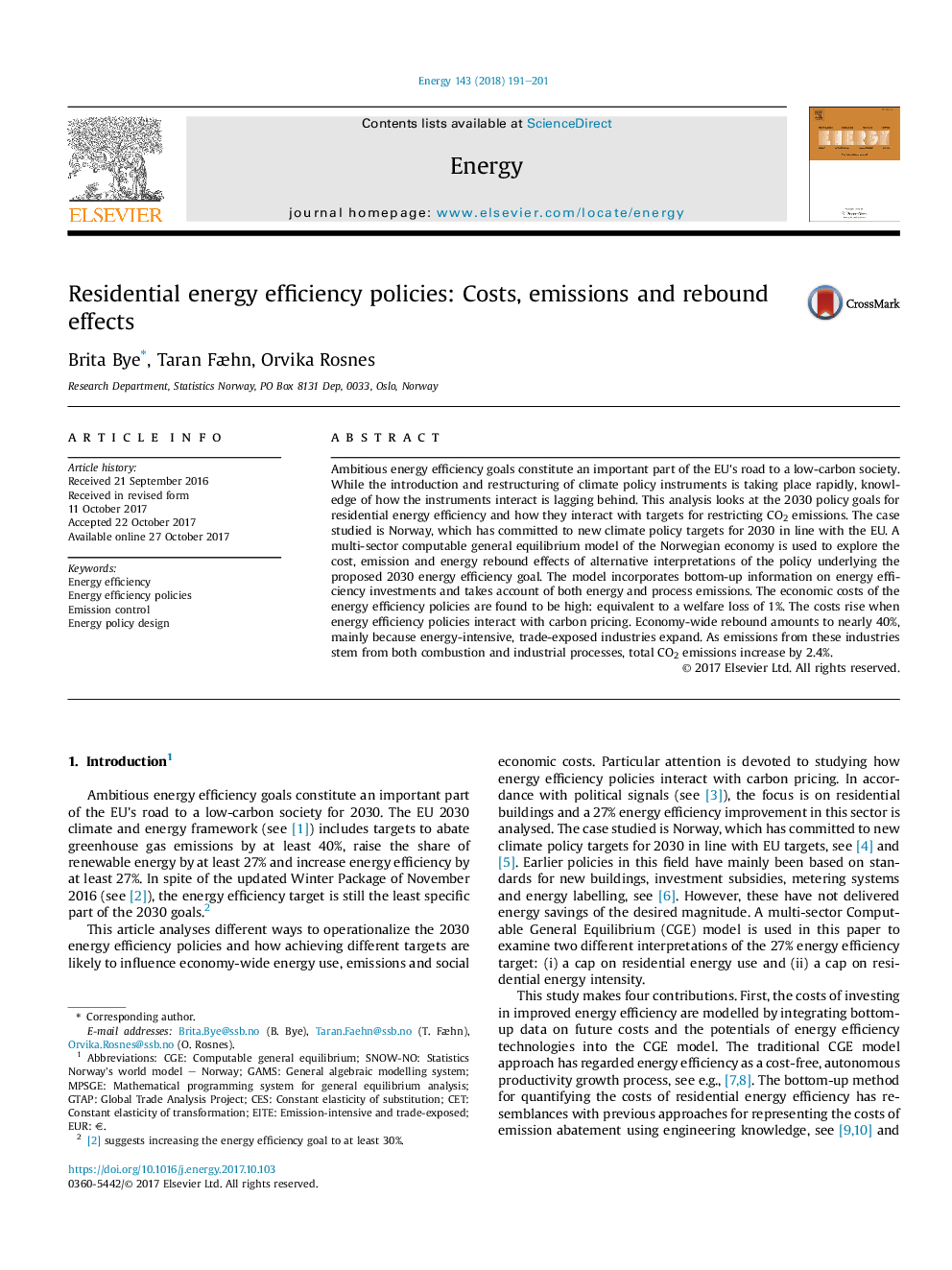| کد مقاله | کد نشریه | سال انتشار | مقاله انگلیسی | نسخه تمام متن |
|---|---|---|---|---|
| 8072375 | 1521407 | 2018 | 11 صفحه PDF | دانلود رایگان |
عنوان انگلیسی مقاله ISI
Residential energy efficiency policies: Costs, emissions and rebound effects
ترجمه فارسی عنوان
سیاست های بهره وری انرژی مسکونی: هزینه ها، انتشارات و اثرات بازگشت
دانلود مقاله + سفارش ترجمه
دانلود مقاله ISI انگلیسی
رایگان برای ایرانیان
کلمات کلیدی
بهره وری انرژی، سیاست های بهره وری انرژی، کنترل انتشار، طراحی سیاست انرژی،
موضوعات مرتبط
مهندسی و علوم پایه
مهندسی انرژی
انرژی (عمومی)
چکیده انگلیسی
Ambitious energy efficiency goals constitute an important part of the EU's road to a low-carbon society. While the introduction and restructuring of climate policy instruments is taking place rapidly, knowledge of how the instruments interact is lagging behind. This analysis looks at the 2030 policy goals for residential energy efficiency and how they interact with targets for restricting CO2 emissions. The case studied is Norway, which has committed to new climate policy targets for 2030 in line with the EU. A multi-sector computable general equilibrium model of the Norwegian economy is used to explore the cost, emission and energy rebound effects of alternative interpretations of the policy underlying the proposed 2030 energy efficiency goal. The model incorporates bottom-up information on energy efficiency investments and takes account of both energy and process emissions. The economic costs of the energy efficiency policies are found to be high: equivalent to a welfare loss of 1%. The costs rise when energy efficiency policies interact with carbon pricing. Economy-wide rebound amounts to nearly 40%, mainly because energy-intensive, trade-exposed industries expand. As emissions from these industries stem from both combustion and industrial processes, total CO2 emissions increase by 2.4%.
ناشر
Database: Elsevier - ScienceDirect (ساینس دایرکت)
Journal: Energy - Volume 143, 15 January 2018, Pages 191-201
Journal: Energy - Volume 143, 15 January 2018, Pages 191-201
نویسندگان
Brita Bye, Taran Fæhn, Orvika Rosnes,
